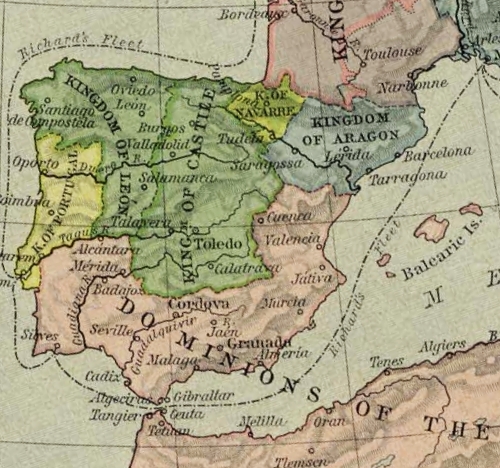quapitty said:Why not a killing monk. But a bit strange to me is Hildegard von Bingen. I think she is a very interesting character, but to see her riding on a horse killing soldiers is maybe too much. And I found out, she already died before 1200. So why not having a Bogomil priest? And maybe there is someone else for Hildegard. Is there a hero from Portugal or Toulouse? Or Bohemia?
A killing monk is what Domingo de Guzmán will portray. But I won't change Hildegard, first because I like her, and I think that if you don't like the idea of her killing people, just give her a bow and arrows and make her stay with the bowmen, or pretend she's not there. Second, because it's a character that was hard to develop. At first it was boring to write (a noun... what a drag), but later on I had an idea, I related her "unorthodoxness", her criticism to the Church and her scientific interest to create a William of Baskerville-like character. When I finished the writing, I loved her.
The more characters, the better, actually, because I will need not to relate them with the ones I have already made. Make up the relations between the characters, why they like and they hate each other, making it concord with their personalities, status, etc, is a hard work. I happen to be an amateur writer, so I found it an interesting challenge, but sometimes I just failed and went to the typical topics. So, changing the number of companions will always mean to change also some of the character's relatioships, and that's a mess. If I get 6 extra characters, I will be able to make another circle to the wheel of companions wit just altering two of the existing, or none.
So, more suggestions will be welcome! We have the Bogmil priest, a possible Jew...















